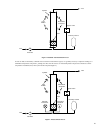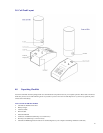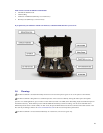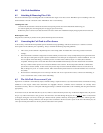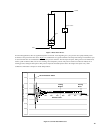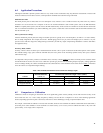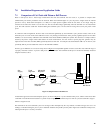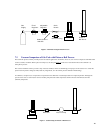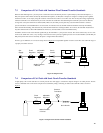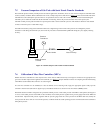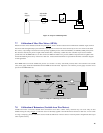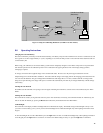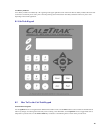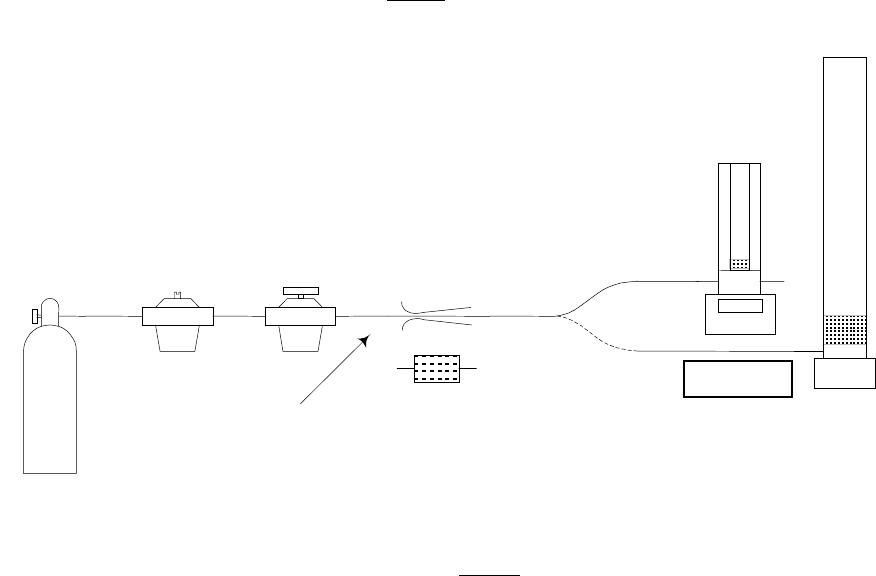
12
7.0 Installation Diagrams and Application Guide
7.1 Comparison of Cal=Trak with Piston or Bell Provers
Piston or bell provers have a much longer measurement time than the Cal=Trak. For this reason, it is possible to compare them
simultaneously, but certain precautions must be observed. When the Cal=Trak begins its cycle, the piston’s weight causes the internal
pressure to rise by about 0.001 atmospheres (~0.1 kPa). If a simple pressure regulator feeds the test chain, we are simply using the
resistance of the entire flow chain to set our flow rate. The rate will then change significantly when the Cal=Trak is in its measurement
cycle. This will cause the actual flow measured during the Cal=Trak cycles to be less than the average flow seen by the piston or bell
prover.
To render this effect insignificant, the flow must not be affected significantly by the Cal=Trak’s cyclic pressure increase. This can be
achieved by use of a sonic nozzle as the stable flow source, or by feeding a fixed restrictor with a precisely regulated pressure of more than
200 kPa, as is used in factory calibration of the Cal=Trak. Note that at 200 kPa (30 PSI), the dynamic flow decrease of a simple restrictor
caused by the piston’s weight will be about 0.05%. In certain circumstances, the sonic nozzle or porous plug flow generator may be
replaced with a mass flow controller (MFC) specifically tailored to this task. An example is the Sierra Model C100L-10, -24 and -44, each
specifically built to provide a stable flow source for the Cal=Trak calibrator.
For this type of calibration, we can use the setup shown in Figure 5
. The adjustable regulator is used to set the flow rate within the range of
a properly sized flow restrictor. A piston or bell prover cycle is instituted. The Cal=Trak and the prover can then be alternately measured
using the fixed flow source.
Fixed
Regulator
A
djustable
Regulator
Sonic
Nozzle
OR Porous Plug
DryCal
Piston or
Bell Prover
Stable Pressure
> 200 kPa
Gas
Supply
Figure 5 Setup for Piston or Bell Provers
An alternative approach can be used with piston provers, as shown in Figure 6.
A cycle is initiated on the prover, which is much slower than
a Cal=Trak. The Cal=Trak is then started in a cyclical mode, averaging its flow. Before the prover ends its cycle, the Cal=Trak is stopped
and the average flow read.
The Cal=Trak can be set for sufficient cycles in its average to allow interruption by the “stop” button, or smaller averages, such as 5 or 10
readings, can be taken during the prover cycle. It should be noted that the periodic pressure pulses might cause oscillations in bell provers,
reducing the bell prover’s accuracy somewhat.
Cal=Trak





